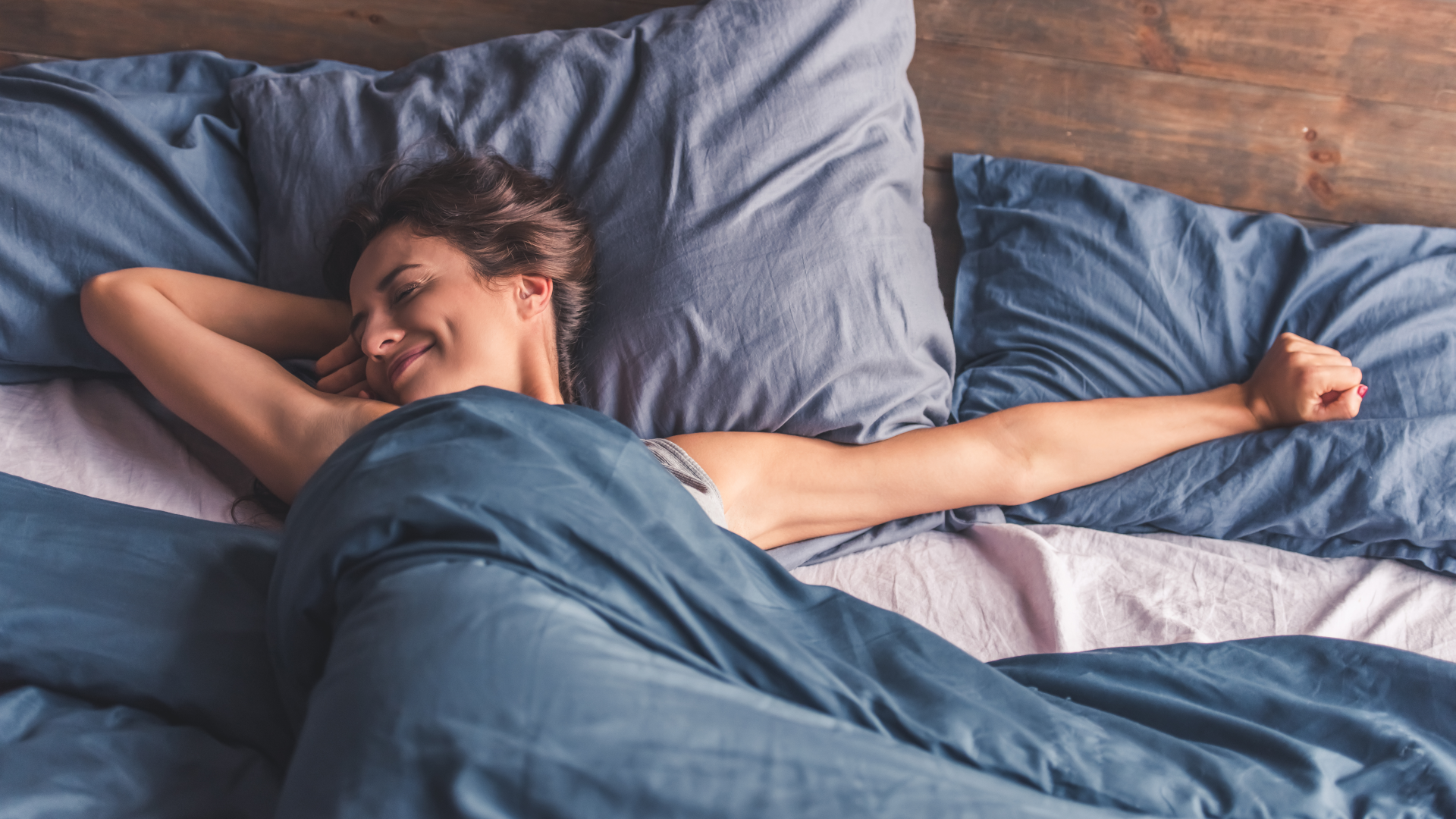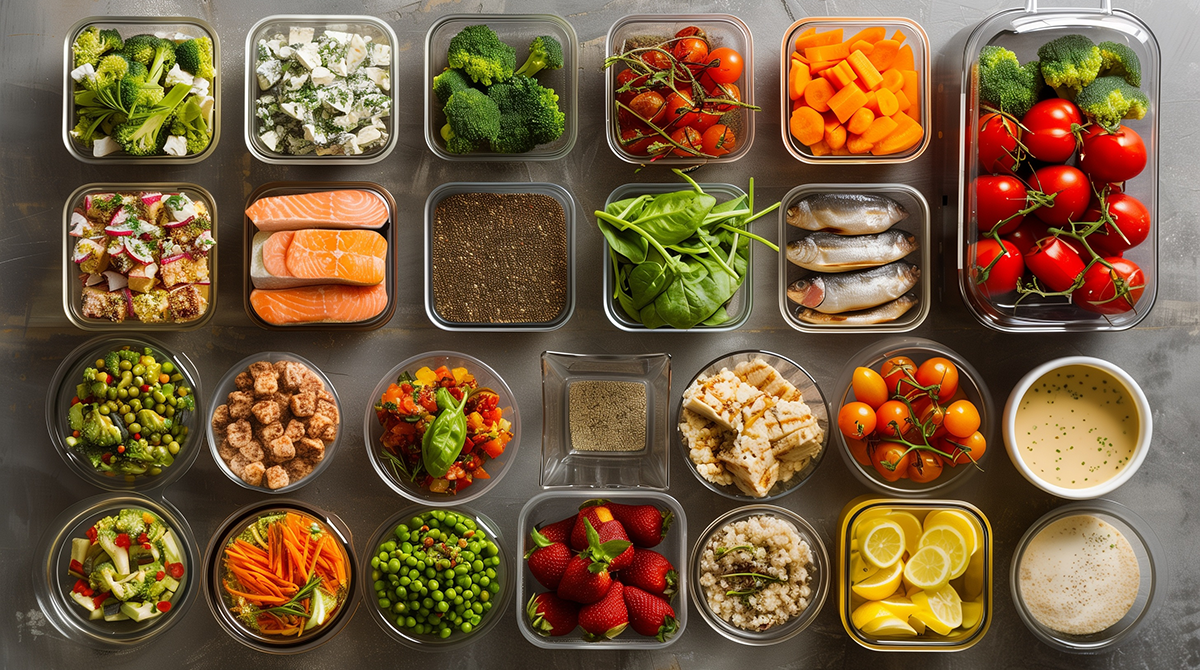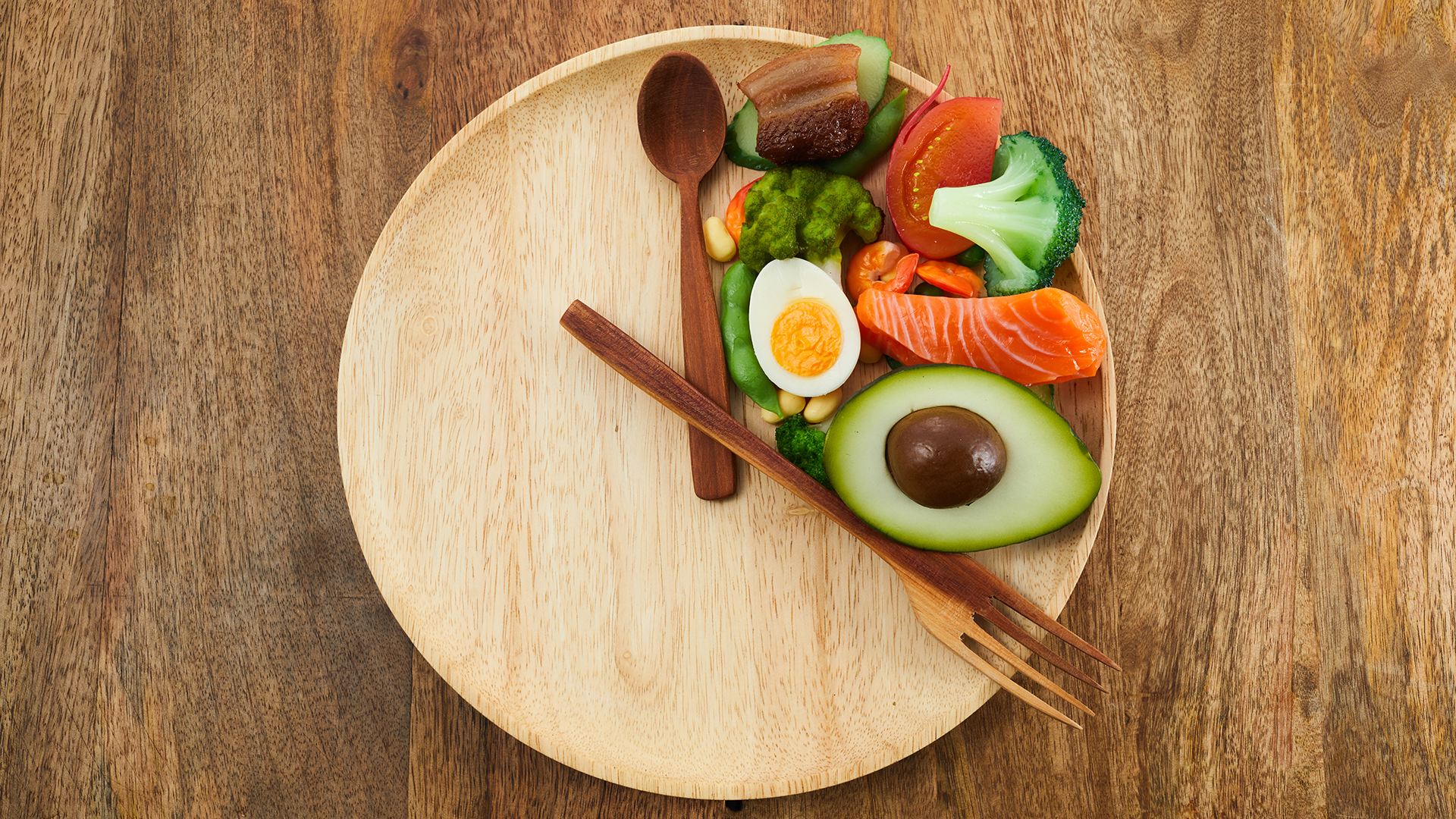Things you'll learn here |
Should You Go to Bed Hungry?
Balancing your nighttime eating habits can be a delicate act. While it’s advisable to avoid a heavy meal right before hitting the sack, going to bed on an empty stomach isn't the best option either.
Why Avoid Sleeping Hungry?
Disrupted Sleep Patterns: Hunger pangs might wake you in the middle of the night, disturbing your sleep cycle. This interruption doesn't just affect how well you rest; it can also impact your overall health and mood the next day.
But there's more to consider. Poor, disrupted sleep has been linked to weight gain. When your sleep is fragmented, your body may produce more of the hormone ghrelin, which increases appetite, and less of the hormone leptin, which signals fullness. This hormonal imbalance can lead to overeating and weight gain over time.
Furthermore, inadequate sleep can alter your metabolism, making it more challenging to process calories efficiently. Studies have shown that people who experience regular sleep disturbances tend to consume more calories and engage in less physical activity.
In essence, ensuring a good night's sleep is not just about waking up refreshed. It plays a crucial role in maintaining a healthy weight and overall well-being. So, while it might be tempting to skip that late-night snack, a small, healthy option can help you rest better and support your body's natural rhythms.
Unhealthy Midnight Snacking: Waking up ravenous can lead to impulsive trips to the kitchen. When you’re half-asleep and starving, you’re more likely to reach for quick, high-calorie foods that might derail your dietary goals.
Finding the Right Balance
To strike a healthy balance, consider having a light snack before bed. Options rich in protein and complex carbohydrates, such as a small bowl of yogurt with nuts or a slice of whole-grain toast with peanut butter, can be satisfying without overwhelming your digestive system.
Prioritizing these lighter snacks can help prevent those nighttime hunger wake-ups, maintaining a better quality of sleep while keeping your nutrition goals intact. Remember, the key is moderation and making wise choices that support both restful sleep and a healthy lifestyle.
Nine fat-burning bedtime snacks you need to know about
1. Citrus fruits
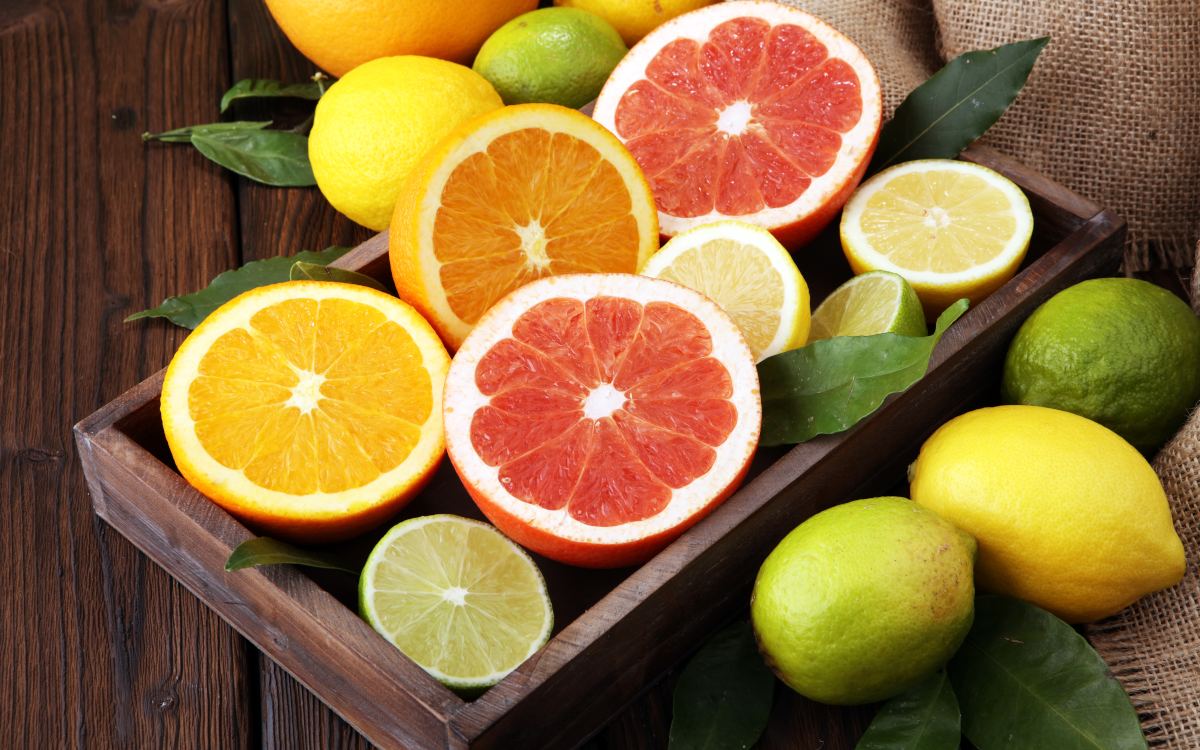
Citrus fruits like oranges, lemons, limes, and grapefruits are absolutely packed with vitamin C —which is great for your skin, bones, and overall health.
Vitamin C is also used to produce L-carnitine, an amino acid that helps your body break down fat to use for energy.
Diets that are low in vitamin C have been linked to obesity and higher waist measurements. So make sure your balanced diet is packed with this tasty nutrient. And if someone tells you not to snack before bed, throw some oranges or a grapefruit at them.
2. Dairy
In a list of what to eat before bed for fat loss you probably wouldn’t expect to see dairy as an option, though some worry it could lead to weight gain. As they tend to have high fat and calorie contents, dairy products are often considered the enemy to weight loss.
But the calcium in dairy plays an important role in how fat is processed and stored by your body. The more calcium you have in a fat cell, the more fat your body will burn.
Dairy also contains tryptophan, an essential amino acid that helps you get some restorative sleep. So it’s a double whammy for bedtime fat-burning.
3. Bananas
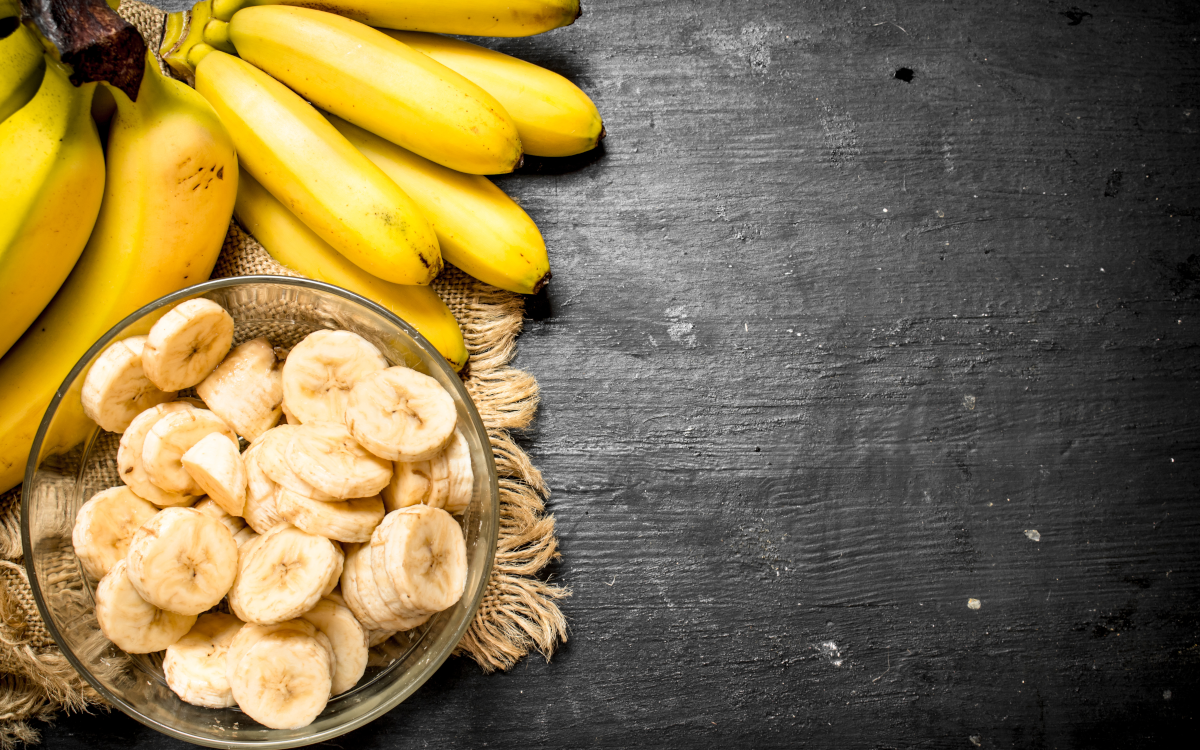
At just 100 calories, bananas are always a healthy snack option—especially under-ripe bananas.
As they’re packed with resistant starch, greener bananas can help boost fat oxidation. This is when your body converts fatty acids into energy, ultimately increasing the amount of fat your body burns.
4. Whole grains
Whole-grain bread, pasta, cereal, and crackers are all great food choices to satisfy your late-night snack cravings (just not all at the same time).
Whole grains can increase your basal metabolic rate (BMR), which is the amount of calories your body burns while you’re chilling out.
Plus, they’re packed with fiber. So they’re pretty filling and can help prevent your body from absorbing some of the fat you eat.
5. Protein shakes
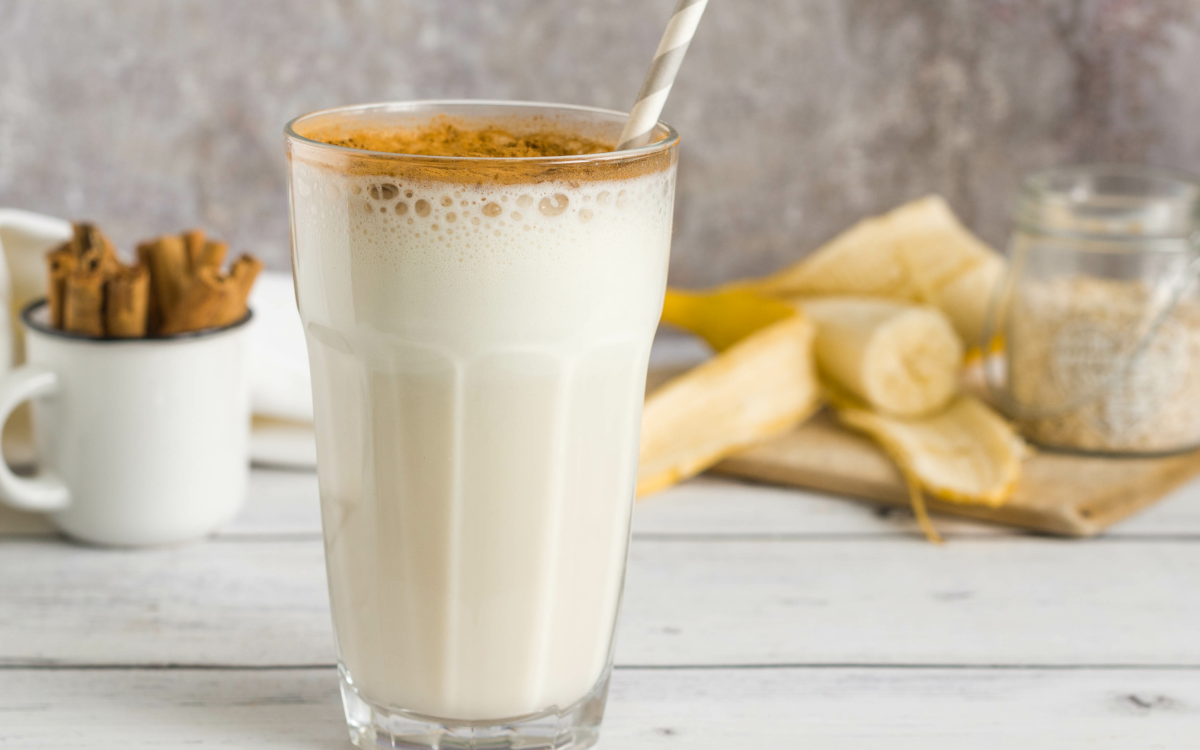
Protein shakes aren’t just for gym-goers. Protein is actually a great fat-burning tool for us all!
As protein has a high thermic effect, it requires more energy to digest than carbs or fat. So, simply upping your protein intake actually helps your body burn more calories.
Although you can get protein from a variety of other sources, shakes are a good option because they pack in the protein without adding a load of extra calories to your diet. So, make sure your cupboards are stocked with your favorite protein powder.
6. Almonds
Almonds are a nutrient-dense option that contains healthy fats, protein, and fiber. This magic combo helps promote feelings of fullness and can prevent overeating less-healthy options.
They provide lots of essential fatty acids and vitamin E too, which further support your overall health.
Almonds also contain melatonin and magnesium—both of which can help you fall asleep faster and improve sleep quality. Almonds also contain satiety-inducing nutrients, making them an ideal snack before bed.
7. Green tea
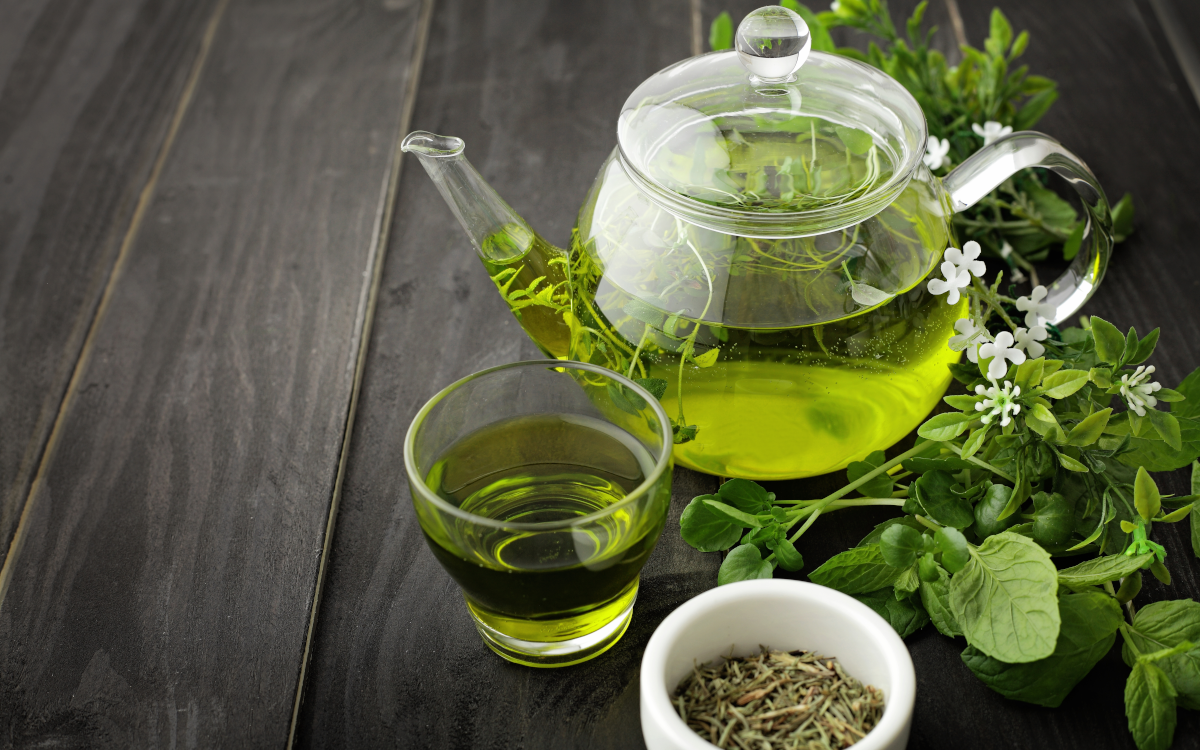
Green tea is a great metabolism booster as it contains catechins like epigallocatechin gallate (EGCG). EGCG has been shown to increase fat oxidation, leading to increased calorie burn.
So a cup of green tea before going to sleep is a good way to boost fat loss—just make sure it’s decaffeinated. You don’t want to be up all night.
8. Celery
Celery is such a low-calorie vegetable that you often hear it said it requires more energy to digest than it provides.
Unfortunately, this isn’t quite true. But that doesn’t stop it from being a great fat-burning snack. that doesn't lead to weight gain. Is high in fiber, so it makes you feel full and supports healthy digestion.
Spread some almond butter across a stick or two of celery and you’ve got a two-in-one night-time snack for better fat burning.
9. Greek Yogurt
Greek yogurt is often considered a great bedtime snack for a few reasons. Firstly, it's rich in protein, which can help promote muscle repair and growth while you sleep. This can be particularly beneficial if you've had a workout earlier in the day or if you're looking to maintain muscle mass.
Additionally, Greek yogurt contains tryptophan, an amino acid that can help promote relaxation and sleepiness. Tryptophan is a precursor to serotonin and melatonin, which are neurotransmitters involved in regulating sleep-wake cycles.
Moreover, Greek yogurt is lower in carbohydrates compared to other types of yogurt, which means it's less likely to cause spikes in blood sugar levels that can disrupt sleep patterns.
Lastly, Greek yogurt is a good source of calcium, which is important for bone health and may also promote relaxation and sleep.
The combination of high protein, tryptophan, and calcium in Greek yogurt makes it a satisfying and potentially sleep-promoting bedtime snack. However, individual food responses can vary, so it's always a good idea to listen to your body and see how different snacks affect your sleep.
Snack Creation Guidelines
To craft your own bedtime snacks, consider these helpful tips:
-
Caloric Control
Aim to keep your snack around 150 calories. This allows you to indulge without overloading on calories. -
Macronutrient Focus
Choose a snack that primarily consists of one macronutrient. Protein is an excellent choice when aiming for muscle repair and hunger control. -
Daily Calorie Count
Don't forget to factor your nighttime treat into your daily calorie intake. This ensures you're on track with your overall dietary plan.
By selecting these thoughtful snack options, you can enjoy a satiating treat that aligns with your health objectives.
Why Include a Nighttime Snack in Your Daily Calorie Count?
Including your nighttime snack in your daily calorie count is crucial for maintaining a balanced diet and achieving health goals.
Prevents Overeating
Estimating and logging a nighttime snack can prevent unintentional overeating. When you account for every bite, you're less likely to exceed your daily calorie limit, which could sabotage weight management efforts.
Enhances Nutritional Awareness
Tracking snacks encourages better nutritional choices. When you know you'll be recording that late-night nosh, you're more apt to reach for healthier options like Greek yogurt or a handful of almonds rather than empty-calorie snacks.

Supports Consistent Energy Levels
Including your snack in your calorie count can help stabilize blood sugar levels. Consistent energy throughout the day and night minimizes cravings, reducing the risk of reaching for unhealthy, high-calorie items out of sheer hunger.
Aids Weight Management
Balancing daytime and nighttime caloric intake supports weight management by ensuring you're not consuming too many or too few calories. Adjusting your intake throughout the day allows for a controlled, healthy snack at night without guilt.
Encourages Mindful Eating
When all meals and snacks are factored into your calorie count, you're practicing mindful eating. This habit promotes greater awareness of your dietary habits, which can lead to long-term positive changes and better health outcomes.
By maintaining this habit, you're ensuring that your overall dietary intake aligns with your personal health and fitness objectives.
What time should you eat food before bed?
OK, so we’ve seen the best foods to eat before bed—and what health benefits they provide. But ‘before bed’, ‘in the evening’, and ‘at night’ are quite vague terms.
So what are the actual times you should be eating your final snacks of the day?
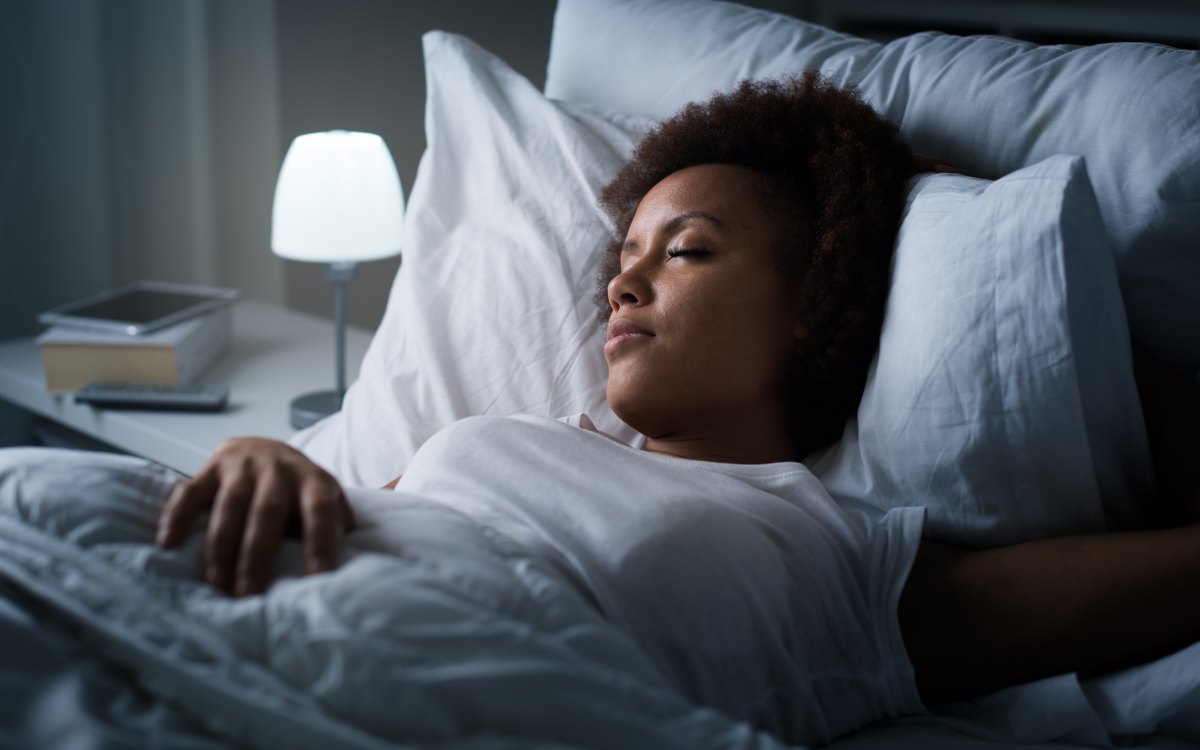
The ideal time to eat healthy snacks before bed may depend on what you eat and how your body responds to each food, especially if you're trying to avoid weight gain.
A good rule of thumb to start with is to allow at least an hour or two between snacking and going to sleep to ensure proper digestion and minimize your risk of discomfort during sleep cycles. Studies have shown the impact of nighttime eating.
Leave around two to three hours before bed if you’re eating a big meal, though. Why? Well, because doing so gives your body enough time to digest the extra food before lying down, reducing the likelihood of indigestion, acid reflux, or discomfort—all of which can interfere with good sleep quality.
It‘s important to listen to your own body though, adjusting your ‘nearly nocturnal snacking’ timings based on your individual needs.
If you find that eating food close to bedtime doesn’t interfere with quality sleep or digestion, you could even choose to eat a healthy snack within an hour of going to bed. Always try to avoid Caffeine and Alcohol before bed.
Why Eating Before Bed Might Lead to Weight Gain
Understanding weight gain hinges on the balance between calories consumed and calories burned. Whenever you consume more calories than you expel, it results in weight gain. Eating before bed can influence this delicate balance.
Metabolic Slowdown During Sleep
Your metabolism naturally decelerates while you're asleep. This means food eaten late at night might not be burned off as efficiently as food consumed earlier in the day. Consequently, the same meal could result in a greater net calorie gain if eaten at night compared to the morning.
Effects on Fullness and Caloric Intake
Research has shown that meals consumed in the morning tend to leave individuals feeling fuller longer as opposed to those eaten in the evening. This sensation of fullness can lead to reduced overall daily calorie consumption if breakfast is prioritized over late-night snacking.
The Role of Hormones
Hormones, especially ghrelin, play a critical role in managing hunger. Ghrelin levels often increase at night, particularly in response to stress. This can enhance feelings of hunger and make overeating in the evening more likely.
Foods to Avoid Before Bed
While the timing of your meals is crucial, the types of food you consume also play a vital role. To optimize sleep quality and potentially manage weight gain, consider avoiding the following foods before bed:
- High-fat foods: These can slow down digestion and lead to discomfort at night.
- Mint: Often linked to heartburn, mint can disrupt peaceful sleep.
- Citrus and spicy foods: Known to trigger indigestion, these can keep you awake with discomfort.
- Chocolate: Contains caffeine and can stimulate the nervous system, making it harder to fall asleep.
In summary, eating before bed can affect your body's ability to effectively process and burn calories, contribute to higher daily calorie consumption, and increase the likelihood of storing those extra calories as fat. Being mindful of both what and when you eat can help in maintaining a healthy weight and promoting better sleep.
How Exercise Enhances Weight Management with Bedtime Snacking
Emerging research highlights that consuming a small, nutrient-dense snack focused on a single macronutrient, like protein, before bed might not lead to the weight gain many fear. In fact, including exercise in this routine can significantly impact your weight management strategy.
The Role of Exercise
-
Boosted Morning Satiety: Individuals who incorporate both an exercise regimen and a small pre-sleep snack experience elevated levels of morning fullness. This increased sense of satiation can lead to reduced caloric intake the following day, supporting weight management goals.
-
Improved Insulin Sensitivity: Engaging in regular physical activity alongside pre-bedtime snacking enhances insulin sensitivity. Improved insulin sensitivity helps the body more effectively process nutrients, which can prevent weight gain and support metabolic health.
By maintaining a balanced approach that combines exercise with mindful snacking, you can harness the benefits of both practices to aid in weight management, even when enjoying a bedtime bite.
What are some other natural ways to lose weight?
Although eating well is a big part of weight management and burning body fat, there are plenty of other things you can do to boost your metabolism and increase calorie burn.
Let’s take a look.
Get moving

Hitting the gym every day isn’t for everyone. But lifting weights and running on treadmills aren’t the only ways to burn calories.
Exercise can be anything that gets you moving and keeps you active.
This could be things like swimming, cycling, or yoga classes, but it can also be things like dancing around the living room, playing tag with your little ones, or walking around the town you live in.
If you’re moving, you’re burning calories. So find little ways to stay active throughout the day (that are also enjoyable for you!), and it will all add up. Trust us.
Love yourself
How you feel mentally can affect what you do physically—so be kind to yourself.
Losing weight doesn’t happen overnight, so be patient and remind yourself of how far you’ve come and the progress you’ve made so far. You can be your own inspiration.
Reducing your stress levels through mindfulness and meditation is a great way to reflect and calm your mind, so you can feel motivated on your health journey.
Get a good night’s sleep
If you’re not sleeping enough, your body isn’t able to recover from exercise properly. And as a result, you’ll feel tired, sluggish while lacking in energy the next day.
A lack of deep sleep also causes mental stress, which can affect your happiness as well as your physical health.
So make sure to prioritize restful and uninterrupted sleep and have some sweet dreams about how well you’re doing with your weight loss goals.
Strike the right balance
The healthiest and most achievable way to lose weight is to take it steady—one day at a time. It’s small lifestyle changes that lead to sustainable results, not going on an impossible diet that makes you unhappy.
Striking a balance is the way to do this. You shouldn’t have to massively disrupt your life or interrupt your happiness to lose weight, but beware of choosing foods that could lead to weight gain.
Eating more healthy foods and being more active in your daily routine are your first steps. So, starving yourself and sweating in the gym for hours every day is not on the agenda.
Snack Smart: Tips and Ideas
To keep your late-night nibbling in check, follow these guidelines:
- Keep Calories in Check: Opt for snacks around 150 kcal.
- Focus on Protein: It’s best if your snack mainly consists of protein to maintain stable blood sugar levels.
- Plan Ahead: Incorporate your bedtime snack into your daily calorie count to ensure balance.
Take a fat-burning supplement
If you want something 100% natural that will speed up your fat-burning efforts even more, PhenQ is your new best friend.
PhenQ is a completely safe and natural weight-loss supplement that combines the power of a fat burner and appetite suppressant into one handy pill.
It also increases your metabolism and helps boost your energy levels, so you’ll feel even more motivated to get moving and burn some calories.
We’ve also got some delicious weight-loss shakes for you to try. These are designed to replace one full meal a day while keeping your energy up, your hunger levels down—and your cravings under control.
And if that wasn’t enough, there’s also PhenQ PM—a night-time fat burner that contains the best ingredients to further increase the amount of weight you can lose while you sleep.
